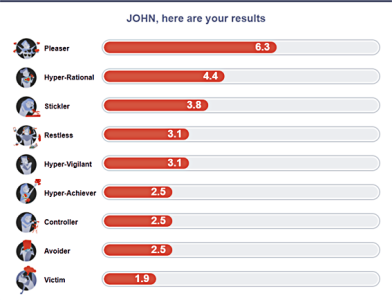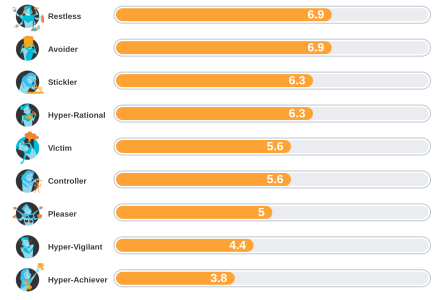Wow, this took off fast!
I'm not an expert in the method but have been facilitated personally and been external to other people's facilitation. With that in mind, a few bits of context to help with this:
1. The horse has left the barn already on this, but with this and other assessments I generally don't recommend sharing actual scores. It shifts the focus away from development and collaboration to opportunities for our insecurities to take over as we measure our respective, errr, numbers. In a theoretical world where we weren't sharing scores, what's important with PQ in general is the highest, then the highest's interactions with the second highest, and/or if the top one or two are clustered with a bunch of others more than two at similar scores, that whole big cluster matters but it also becomes more nuanced if there are more similar things.
2. The saboteurs are part of the larger PQ/positive intelligence model. To simplify and narrow the larger context, at the core is the notion of each of us having sages and saboteurs. Sages are positive qualities that serve us well in our lives while saboteurs are the negative aspects of them. So, for example, a Stickler saboteur has a good side, namely the balanced, thoughtful, and proportionate use of discernment and discretion in doing exceptional work. But it is operating as a saboteur when it is unnecessarily picky, leads to frustration, or fuels malignant interactions with those around us. The theory is that, while awareness of our saboteurs can lead to ~20% progress in softening or overcoming them, it takes exercise - called PQ's - to impact the 80% of possible progress requires the specific daily exercises taught in the method and facilitated by a mobile app.
3. Albeit in a small sample size, I've found a strong correlation between past development work done by the user and the acuteness of their saboteurs. I've seen on 40-something person who has middling to low scores and another who has some quite high, some moderate, and a couple of low scores. However, the former person has done years of talk therapy and significant personal development work for a period of years in the past. The latter had almost no talk therapy or personal development work. Younger people whose results I've seen tend to have more high and moderate scores. The point I want to make here is that I think high scores are "normal" and not something to feel self-conscious about, particularly if you don't have a history with talk therapy and/or personal development work.
Per another thread my top two are Restless and Stickler. I'm also working on aspects of Pleaser, Controller, and Hyper-Rational.
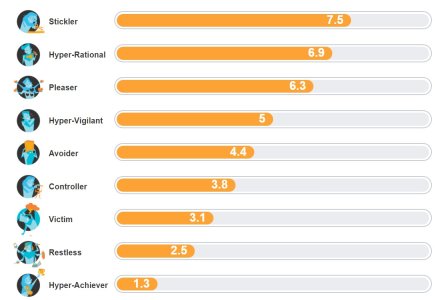
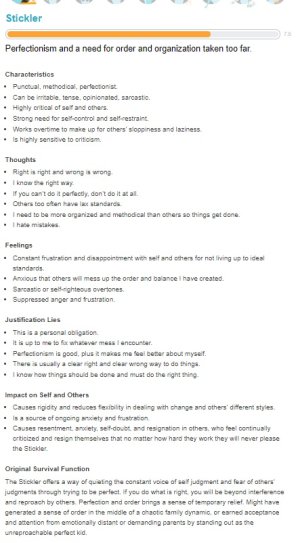
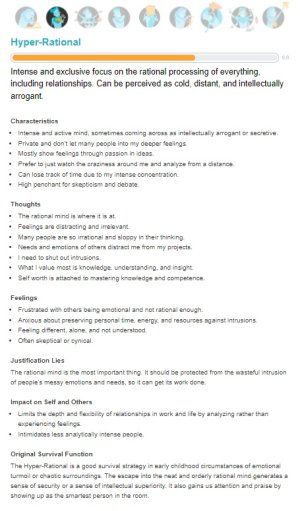
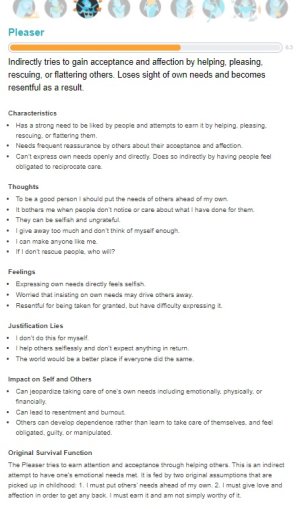
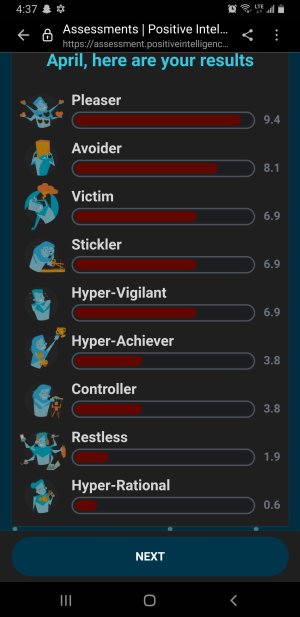
How strange. I wonder why it did that?
